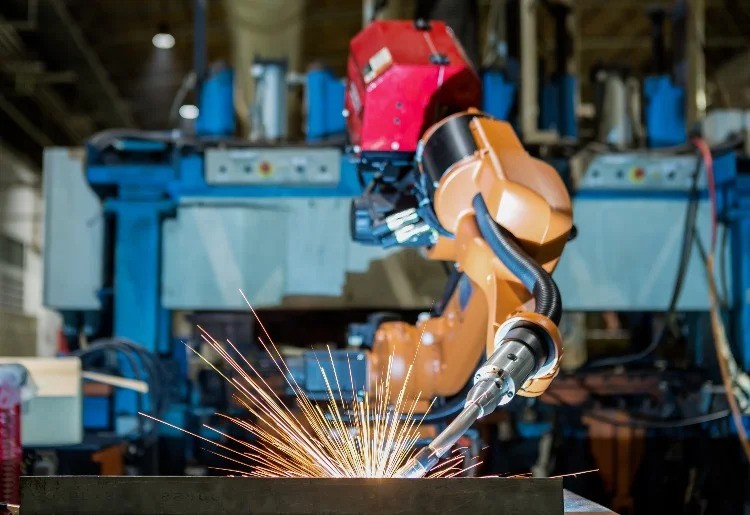Six foodtech startups secure $465K from the Canadian Food Innovation Network


The Canadian Food Innovation Network (CFIN) is awarding $464,518 to six foodtech projects through the organization’s Innovation Booster Program. Industry will match these funds to create projects valued at nearly $930,000.
The Innovation Booster funding recipients are:
Project lead: GreenCo Robots Inc. (Alberta)
Project title: Integrated Table Tracking Solution for Quick Service Restaurants
Funding: $97,922
Since lauching in 2020, GreenCo Robots has provided more than 300 robot waiters to Canadian restaurants. Noticing the positive impact of AI and robotics on operational efficiency, they’re launching a Table Tracking Solution, specifically for QSRs. By seamlessly integrating with diverse autonomous robot models, their solution not only addresses critical industry challenges such as labour shortage and efficiency, but also elevates the dining experience by transitioning from traditional counter service to personalized table-side hospitality.
The integrated Table Tracking Solution, when coupled with GreenCo Robots’ existing robotic technologies, has the potential to optimize order delivery, minimize wait times, attract new customers and enhance overall dining experiences.
Project lead: Cheffer Technologies Inc. (Ontario)
Project title: Intelligent Menu-Planning Assistant
Funding: $94,415
Cheffer aims to revolutionize the foodservice industry by empowering operators through data-driven efficiency. This project will leverage data science and AI to develop a proof of concept of Cheffer’s Intelligent Menu-Planning Assistant. The goal is to enable chefs to proactively choose optimal ingredients during menu planning, such as by highlighting opportunities to leverage the highest value ingredients available, forecasting for waste reduction, and highlighting sustainable and local options. This initiative promises to elevate culinary decision-making, enhancing operational efficiency, and sustainability in the food service sector.
Project lead: ProFillet (Nova Scotia)
Project title: Pilot Trails of Plant Based Nutritious Catfish
Funding: $94,107
ProFillet is on a mission to craft a plant-based fish fillet analogue that authentically mirrors the taste, texture, and nutritional composition of raw channel catfish. Their product, now a finalist in the ‘XPrize – Feed the Next Billion’ competition, replicates the protein and polyunsaturated fatty acid content of catfish. Leveraging algal and plant proteins, along with starch hydrocolloids, ProFillet enhances texture and mouthfeel in comparison to existing plant-based seafood. Collaborating with food formulation experts, they’re advancing from bench prototypes to a pilot-scale production of two-three fillets, selecting the best for a subsequent 300-unit production run.
Project lead: Dispension Industries Inc. (Nova Scotia)
Project title: Intoxication Detection System for Unattended Alcoholic Beverage Kiosks
Funding: $89,562
Dispension specializes in secure, self-service kiosks for canned beer and ready-to-drink beverages. Their key innovation is Intoxivision, an intoxication detection system that uses thermal imaging for real-time analysis of a person’s intoxication level. This project aims to develop an intoxication detection model, create a real-time detection device, undergo regulatory compliance reviews, and document the findings. The goal is to advance Intoxivision to commercial readiness, enabling Dispension’s beer kiosks to operate fully unattended in stadiums and venues, offering a contactless and secure solution for dispensing alcoholic beverages.
Project lead: Transport Genie Ltd. (Ontario)
Project title: Smart Real-Time Gas Sensors Development and Integration
Funding: $60,107
Transport Genie is advancing their sensor technology by integrating gas measurement capabilities—specifically for ammonia, carbon dioxide, and ethylene in parts per million—alongside temperature and humidity monitoring. This innovation aims to enhance precision and minimize risks during transportation events, offering real-time insights. Monitoring ethylene is crucial, especially as it’s released during fruit and vegetable ripening. The incorporation of these sensors not only opens new revenue streams, but also addresses sustainability concerns. Transport Genie’s Canadian-designed, manufactured, and assembled sensors have the potential to play a vital role in reducing food waste through instant alerts and improved situational awareness.
Project lead: JAKS Automation Inc. (British Columbia)
Project title: Robotic Paneer Handling & Packaging System
Funding: $28,405
JAKS Automation is implementing an advanced robotic pick-and-place system in a paneer production facility. Their cutting-edge system adeptly handles three sizes of paneer – small, medium, and large – utilizing a food-grade precision suction-based robotic end effector. Integrated with a machine vision camera, the system identifies and retrieves paneer from a conveyor. This seamless process optimizes production by efficiently placing paneer into packaging units, ensuring precision and reducing waste from mishandling.
“These six projects represent CFIN’s vision for a future where new ideas and technologies create a more efficient, sustainable, and customer-centric food industry. As we introduce intelligent solutions, autonomous robots, and state-of-the-art technologies, it’s clear that Canadians aren’t just embracing change in the food sector – we’re the ones driving it,” said Dana McCauley, CEO, CFIN.
Source: www.foodincanada.com

